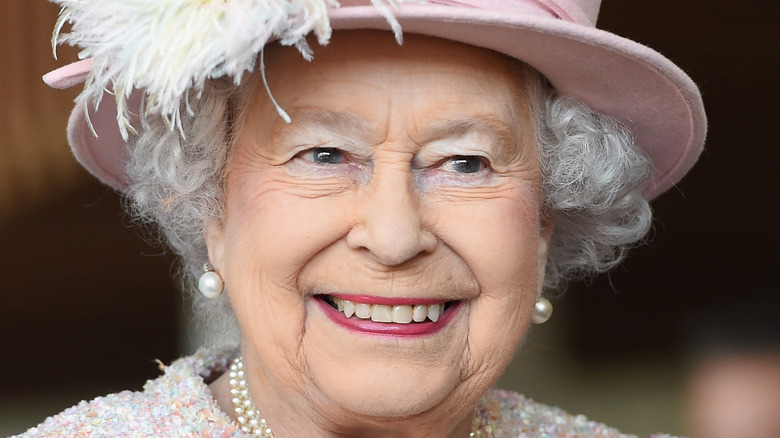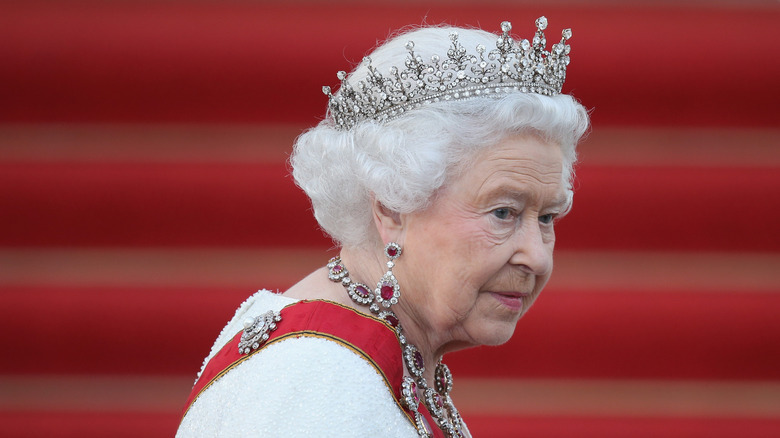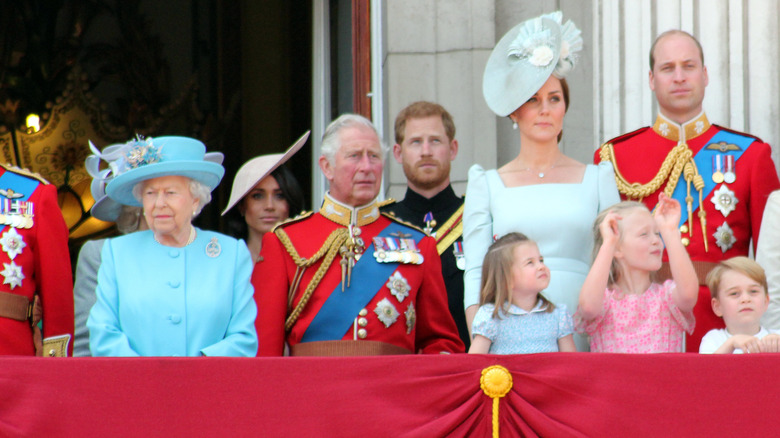The Queen Pays Taxes Even Though It's Not Required. Here's Why
Benjamin Franklin famously once said that "nothing can be said to be certain except death and taxes." While absolutely no one can escape death, people with good enough accountants and lawyers can sometimes escape taxes.
You would think that monarchs could also skip out on paying taxes. Yet, in at least one case, you would be wrong. Britain's Queen Elizabeth II has been paying taxes for decades, and it's quite likely that future sovereigns of the United Kingdom, to include her son Charles, grandson William, and great-grandson George, will all have to pay taxes as well. What's more, the Crown pays those taxes voluntarily; officially, the monarch hasn't had to pay taxes since, well, forever.
So how much money does Queen Elizabeth even have that's her own (and not from the public fund that subsidizes the Crown), and why does she pay taxes on it if she doesn't have to?
Yes, the queen has her own money
The first key to understanding how and why Queen Elizabeth pays taxes is understanding the difference between her own money and the public money that's (kind of) hers to use.
As a public institution, the monarchy is partially funded by British taxpayers, according to British Heritage. The amount required of Her Majesty's subjects varies year to year; in 2018, for example, her tab was £67 million ($94 million). That money is used for various royal matters, such as the upkeep on Buckingham Palace, paying for travel for members of the royal family, and so on.
However, the queen and her family also own hundreds of millions of pounds' worth of assets, most of which consist of art and real estate. That money is all hers (or more accurately, her family's), and is worth somewhere in the neighborhood of £343.5 million ($482.5 million), according to The Express. The queen pays income taxes on the monies earned from her investments; she pays "council taxes" (roughly equivalent to property taxes) on her castles and manors that she privately owns; and she pays value-added tax (roughly equivalent to sales tax) on goods and services she purchases.
The queen volunteered
Back in 1992, stunned silence filled the House of Parliament when then-Prime Minister John Major told the legislative body that their sovereign, Her Majesty Queen Elizabeth, was looking into ways that she could pay taxes, as The Washington Post reported.
The queen did not, however, explicitly say why she was suddenly interested in paying taxes. A spokesperson, the Lord Chamberlain, Lord Airlie, noted via The L.A. Times that this was simply a matter of updating the monarchy for the times in which it functioned.
"It is only by moving with the times, not too fast and not too slow, that the institution itself can continue to make its essential contribution to national life," he said.
The Post, however, noted that, at the time, the recession-ravaged British public were starting to get fed up with the lavish wealth of their monarchs. In particular, a fire had severely damaged Windsor Castle, bringing with it a $90 million repair bill for which the British taxpayers were going to be on the hook.
Meanwhile, the idea of the British monarch voluntarily paying taxes was not without precedent. According to The New York Times, Elizabeth's father, King George VI, and her great-grandmother, Queen Victoria, also voluntarily paid taxes.


